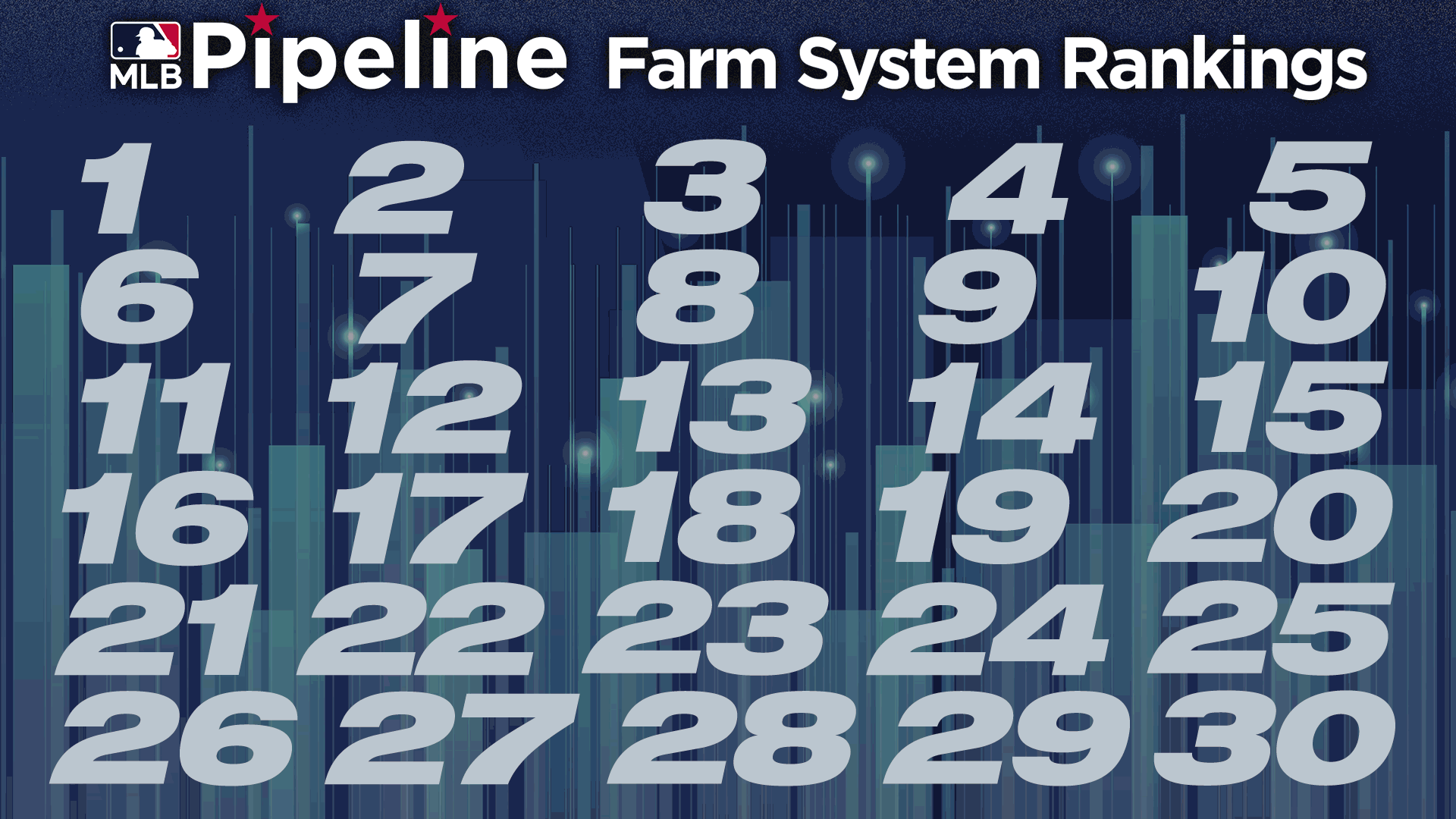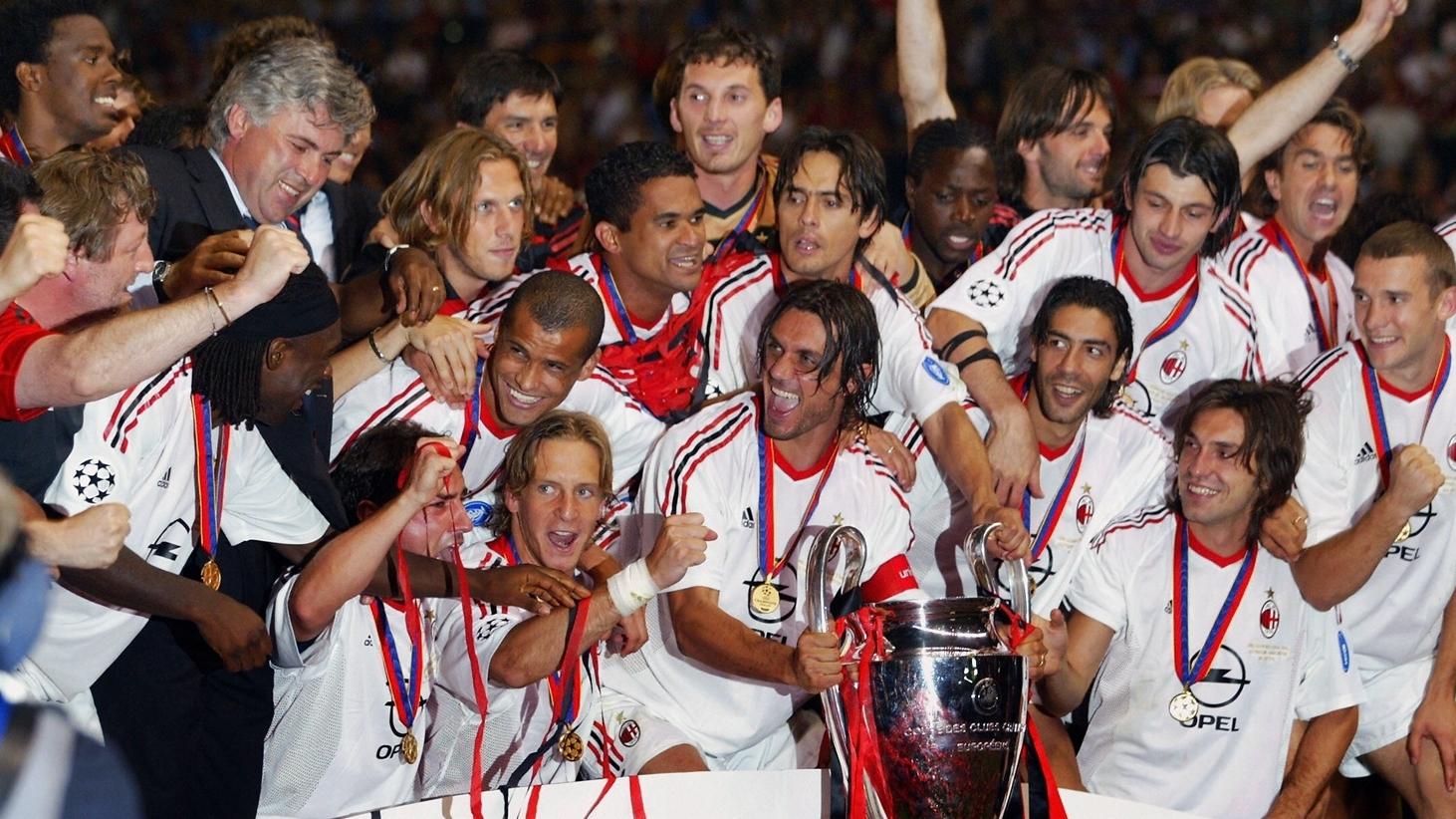MLB Experts Rank Angels' Farm System Among The Worst

Table of Contents
Lack of High-Ceiling Prospects
The Angels' struggles stem, in part, from a persistent lack of high-ceiling prospects poised to become future MLB stars. This deficiency is a result of weaknesses in both drafting and international scouting.
Insufficient Draft Success
The Angels haven't consistently drafted and developed top-tier talent, a critical factor in building a strong farm system. This suggests potential weaknesses in scouting, player development strategies, or a combination of both.
- Examples of failed high draft picks: Analyzing past draft choices reveals a pattern of underperformance from players selected high in the draft. A deeper dive into these cases could uncover reasons for their failure to reach expectations. For example, [insert specific example of a high draft pick who underperformed, including relevant details].
- Comparison to successful teams' draft strategies: Examining the draft strategies of teams with consistently strong farm systems, like the Tampa Bay Rays or Atlanta Braves, could highlight areas where the Angels fall short. This comparative analysis may reveal crucial differences in scouting methodologies or player development approaches.
- Analysis of recent draft classes: Evaluating the Angels' recent draft classes allows for an assessment of current progress and potential future success. A careful analysis of these classes would examine the performance of drafted players and highlight any promising prospects emerging.
International Scouting Deficiencies
Similar issues plague the Angels' international scouting efforts, further limiting the influx of young talent. This area requires significant attention and strategic improvements.
- Comparison with teams excelling in international signings: Teams like the Dodgers or the Yankees have consistently found success in international markets. Comparing their strategies to those employed by the Angels could illuminate crucial differences and areas for improvement.
- Analysis of recent international signings and their development: A thorough review of recent international signings and their subsequent development trajectories can reveal any systematic issues or areas requiring attention. This includes analyzing the support systems and training provided to these players.
- Discussion of potential systemic issues: The lack of success in international scouting could point to broader systemic issues, such as insufficient resources allocated to this crucial area or a lack of expertise within the scouting department.
Player Development Issues
Even when promising players are acquired, the Angels struggle to effectively develop them into major league-ready talent. This highlights significant concerns within the organization's player development infrastructure.
Inconsistent Coaching and Training
Inconsistencies in coaching and player development programs may hinder the growth of promising young players. A standardized, high-quality approach is needed.
- Examples of players who regressed despite initial promise: Identifying players who demonstrated promise early in their careers but subsequently regressed can highlight potential flaws in the development process. Analyzing these cases can provide insights into areas requiring immediate attention.
- Analysis of the Angels' player development infrastructure: A comprehensive review of the Angels' player development infrastructure is necessary to pinpoint any shortcomings in facilities, coaching staff, or training methodologies.
- Comparison with successful farm systems: Comparing the Angels' player development infrastructure and methodologies to those of successful organizations can illuminate best practices and pinpoint areas for improvement.
Lack of Opportunities in the Major Leagues
The Angels' tendency to prioritize established stars over promoting prospects limits the development and experience-building opportunities for young players.
- Examples of prospects who could have benefited from earlier promotion: Identifying prospects who might have benefited from earlier promotions illustrates the potential negative consequences of service-time manipulation and a reluctance to give young players MLB experience.
- Discussion of the team's roster construction: Analyzing the team's roster construction highlights the challenges faced by prospects in competing for playing time. This should include an examination of the team’s overall strategy.
- Analysis of service time manipulation: Scrutinizing the Angels' history regarding service time manipulation is necessary to evaluate its impact on prospect development. This helps gauge the organization’s commitment to prioritizing prospect growth.
Financial Constraints and Organizational Philosophy
Financial decisions and the overall organizational philosophy play a significant role in the Angels' farm system's underperformance.
Prioritization of Established Stars
The Angels' focus on acquiring established stars through free agency, rather than building organically through the draft and development, diverts resources and hampers the growth of the farm system.
- Analysis of recent free-agent signings: Examining recent free-agent signings demonstrates the organization's prioritization of proven talent over homegrown prospects. This analysis should include an assessment of the cost and potential long-term impact of these signings.
- Comparison to teams with a more balanced approach: Comparing the Angels' approach to teams with a more balanced approach to roster construction, blending established players with homegrown talent, highlights the potential benefits of a more sustainable strategy.
- Financial implications of this strategy: A thorough evaluation of the financial implications of this strategy—weighing the costs of free agents against the potential long-term benefits of a strong farm system—is critical for a holistic understanding.
Limited Resources for Scouting and Development
Insufficient investment in scouting and player development directly impacts the quality of the Angels' prospect pool. Increased investment is vital for long-term competitiveness.
- Comparison of scouting and development budgets with other MLB teams: Comparing the Angels' scouting and player development budgets with those of other MLB teams illustrates the potential impact of increased investment.
- Potential implications of increased investment: Exploring the potential positive implications of increased investment, including improved scouting capabilities, enhanced training facilities, and more specialized coaching staff, can demonstrate the potential ROI.
- Discussion of long-term strategic planning: A discussion of long-term strategic planning for the Angels’ farm system, including sustained investment in scouting and development, is crucial for highlighting the organization's overall commitment to building a sustainable, winning team.
Conclusion
The consistently low ranking of the Angels' farm system is a critical issue impacting the team's long-term success. The lack of high-ceiling prospects, coupled with issues in player development and organizational philosophy, creates a significant challenge. Addressing these shortcomings requires a multi-pronged approach: improving scouting, enhancing player development programs, and adopting a more balanced approach to roster construction. Investing in the Angels' farm system is not merely beneficial; it’s essential for building a sustainable and competitive future. Let's hope for a significant and sustained improvement in the Angels' farm system rankings.

Featured Posts
-
 Grayscale Xrp Etf Filing And Sec Action Xrps Market Dominance Over Bitcoin
May 08, 2025
Grayscale Xrp Etf Filing And Sec Action Xrps Market Dominance Over Bitcoin
May 08, 2025 -
 Inters Road To The Champions League Final Triumph Over Barcelona
May 08, 2025
Inters Road To The Champions League Final Triumph Over Barcelona
May 08, 2025 -
 Crypto Whales Bet Big 5880 Rally Predicted For This Xrp Alternative
May 08, 2025
Crypto Whales Bet Big 5880 Rally Predicted For This Xrp Alternative
May 08, 2025 -
 Ripple Xrp Sees Significant Investment 20 Million Token Purchase By Whale
May 08, 2025
Ripple Xrp Sees Significant Investment 20 Million Token Purchase By Whale
May 08, 2025 -
 The Champions League Final How Inter Beat Barcelona
May 08, 2025
The Champions League Final How Inter Beat Barcelona
May 08, 2025
Latest Posts
-
 Analyzing Ripples Xrp Potential Can It Break Through To 3 40
May 08, 2025
Analyzing Ripples Xrp Potential Can It Break Through To 3 40
May 08, 2025 -
 Ripples Xrp Assessing The Likelihood Of A Price Increase To 3 40
May 08, 2025
Ripples Xrp Assessing The Likelihood Of A Price Increase To 3 40
May 08, 2025 -
 Is 3 40 A Realistic Price For Xrp Ripples Market Analysis
May 08, 2025
Is 3 40 A Realistic Price For Xrp Ripples Market Analysis
May 08, 2025 -
 Xrp Ripple A High Risk High Reward Investment Opportunity
May 08, 2025
Xrp Ripple A High Risk High Reward Investment Opportunity
May 08, 2025 -
 Analyzing The Challenges Why Xrp Etfs May Underperform Expectations
May 08, 2025
Analyzing The Challenges Why Xrp Etfs May Underperform Expectations
May 08, 2025
